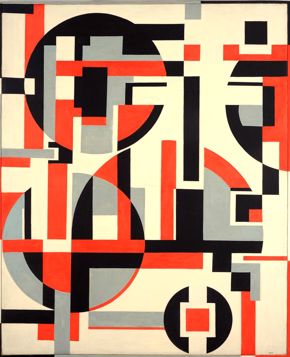Adiós Utopia: Dreams and Deceptions in Cuban Art Since 1950 March 5–May 21, 2017

Sandu Darié, Sin título (Untitled), c. 1960–70, tempera on canvas, Ella Fontanals-Cisneros Collection, Miami.
Raúl Martínez, Sin título (Untitled), 1969–70, oil on canvas, Ella Fontanals-Cisneros Collection, Miami. © Archivo Raúl Martínez
Lázaro Saavedra, El Sagrado Corazón (Sacred Heart), 1995, acrylic on board, Patricia & Howard Farber Collection, New York. © Lázaro Saavedra
Los Carpinteros, Faro tumbado (Felled Lighthouse), 2006, mixed media, American Fund for the Tate Gallery, courtesy of the Latin American Acquisitions Committee 2006. © Los Carpinteros / photo courtesy of the artists
Raúl Corrales, La caballería (Cavalry), 1960, gelatin silver print, Couturier Gallery, Los Angeles. © Estate Corrales, courtesy of Couturier Gallery, Los Angeles
Alfredo González Rostgaard, Canción protesta (Protest Song), 1967, silkscreen, 2nd edition.
Antonio Pérez González (Ñiko), Hasta la victoria siempre (Toward Victory Always), 1967, print.
Helena Serrano, Día del Guerrillero Heroico (Day of the Heroic Fighter), 1968, offset print, Center for Cuban Studies, New York.
Raúl Martínez, 9 Repeticiones del Fidel con Micrófono (9 Repetitions of Fidel with a Microphone), 1968, oil on canvas, Col. Wallace Campbell, Jamaica. © Archivo Raúl Martínez
Glexis Novoa, Sin título, de la serie Etapa práctica (Untitled, from the Practical Stage series), 1989, oil on paper, wood, and fabric, Pêrez Art Museum, Miami. © Glexis Novoa
Raúl Martínez, Rosas y Estrellas (Roses and Stars), 1972, oil on canvas, Patricia & Howard Farber Collection, New York. © Archivo Raúl Martínez
Lázaro Saavedra, El síndrome de la sospecha (Suspicion Syndrome), 2006, video, Ella Fontanals-Cisneros Collection, Miami. © Lázaro Saavedra
Tania Bruguera, Estadística (Statistics), 1995–2000, cardboard, human hair, and fabric, the Museum of Fine Arts, Houston, Museum purchase funded by the Caribbean Art Fund and the Caroline Wiess Law Accessions Endowment Fund. © Tania Bruguera
Información en español sobre la exposición
Adiós Utopia: Dreams and Deceptions in Cuban Art Since 1950 looks at how Cuba’s revolutionary aspirations for social utopia—and subsequent disillusionment—shaped 65 years of Cuban art. The exhibition brings together more than 100 of the most important works of painting, graphic design, photography, video, installation, and performance created by more than 50 Cuban artists and designers.
Anchored by key moments of 20th- and 21st-century Cuban history, Adiós Utopia is the most comprehensive and significant presentation of modern and contemporary Cuban art shown in the United States since 1944, when the Museum of Modern Art in New York presented Modern Cuban Painters.
Although many artists have emigrated from Cuba to live and work abroad, Adiós Utopia focuses on the untold narrative of those artists who remained in Cuba or whose careers took off after Fidel Castro’s 1959 revolution. Through a selection of pivotal artworks—created in each of six decades since 1950—the exhibition explores Cuba’s artistic production through the lens of utopia, both its construction and its deconstruction. Adiós Utopia introduces U.S. audiences to key events in Cuban history and explores how this history affected individual artists, shaped the character of art produced on the island, and conditioned the reception of Cuban art both in Cuba and abroad.
Publication
The comprehensive book accompanying the exhibition is available through the MFA Shop (713.639.7360) and the Museum’s Hirsch Library (713.639.7325).
In-Gallery Extra: Audio Tour
Enhance your experience with the optional audio tour. Available in English and Spanish.
Admission
Entry to this exhibition is included with your Museum admission.
Museum members receive free general admission.
Adiós Utopia: Dreams and Deceptions in Cuban Art Since 1950 is a project conceived by the Cisneros Fontanals Fundación Para Las Artes (CIFO Europa) and The Cisneros Fontanals Art Foundation, CIFO USA. The exhibition is organized in partnership with the Museum of Fine Arts, Houston, and the Walker Art Center, Minneapolis. The exhibition is made possible in part by a major grant from the National Endowment for the Humanities: Exploring the human endeavor.

Major support for the exhibition is provided by the Ford Foundation; The Diane and Bruce Halle Foundation and the Andy Warhol Foundation for the Visual Arts. This project is supported in part by an award from the National Endowment for the Arts. Additional generous support is provided by Ella Fontanals-Cisneros.
In Houston, additional generous support is provided by:
Baker McKenzie
Any views, findings, conclusions, or recommendations expressed in this exhibition do not necessarily represent those of the National Endowment for the Humanities.
